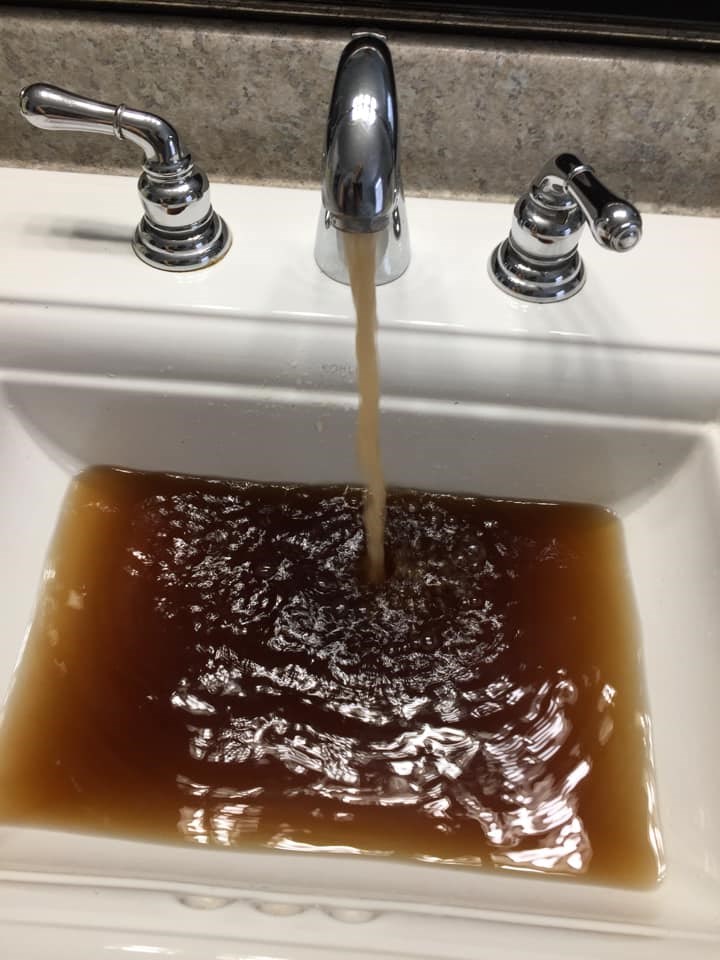There’s hope at the end of a long water pipe for Verner residents who have endured ‘brown water’ issues for decades.
The culprit is high levels of manganese, a naturally occurring mineral in the Veuve River. And it’s been a problem ever since the water plant was built in the 1970s.
On Tuesday, West Nipissing council received a report that recommends connecting the community of 1,100 people to municipal water services as the best solution.
See: Verner's 'brown water' cleared up for now
See: Verner's 'brown water' problem makes rare winter appearance
It will take a couple years and about $10 million, but public works consulting advisor Alan Korell told council that connecting Verner to the water line that already serves Cache Bay is the most “feasible” solution.
Korell, former municipal engineer, said the latest technical memorandum by Aecom, which was received January 13, looked at several alternatives. Among the options investigated was an upgrade of the existing Verner water plant, using Cache Lake as a new water source and utilizing ground water supply. Doing nothing and relying on chemical treatment, as well as limiting town growth were also studied but rejected.
The Cache Lake option would cost $15 million or so, he said, and like the upgrade for the exiting water plant, would require considerable regulatory approvals. And he said studies show there’s no indication a ground water supply is available at the volume needed.
As for extending the Sturgeon Falls water plant pipe from Cache Bay, Korell said the least expensive route is running along the CPR rail way corridor.
“It cuts out three to four kilometres of pipe,” he said, adding it’s also easier construction compared to running along Highway 17 for almost 14 kilometres.
While CPR has indicated it would approve such a proposal, Korell said annual fees would be charged.
“There’s a lot less engineering and red tape,” Korell said, noting it would take about two years for such a project with the first step requiring about $400,000 to get a consulting engineer to get the designs, agreements and permits in order.
Councillors asked about potential funding available and Jay Barbeau, chief administrative officer, said they can get the project “shovel ready” for funding windows open up.
Peter Ming, manager of water and waste water management, said more frequent flushing of the lines and chemical treatment should address the ‘brown water’ issues in the meantime.
Ming said there’s been a learning curve when it comes to the Verner water issue, noting that a new chemical to deal with the manganese mineral in the water works well.
Recent issues, he said, that left residents with brown water events at the end of December and first week of 2021 were caused by manganese settling in the pipes after leaving the plant. And when they first attempted to flush it out, they drained the system and left residents without any water.
Barbeau said they are now flushing the pipes twice a year to address the settlement issues.
Mayor Joanne Savage asked that staff prepare a “step-by-step” outline of the plan so councillors can see when each step is taken.
Barbeau said council will be seeing the project outlined during budget deliberations and they’ll be able to consider approvals at each stage, including the design work.
He said council will be able to decide on its priorities for capital projects then.
Dave Dale is a Local Journalism Reporter with BayToday.ca. LJI is funded by the Government of Canada.
